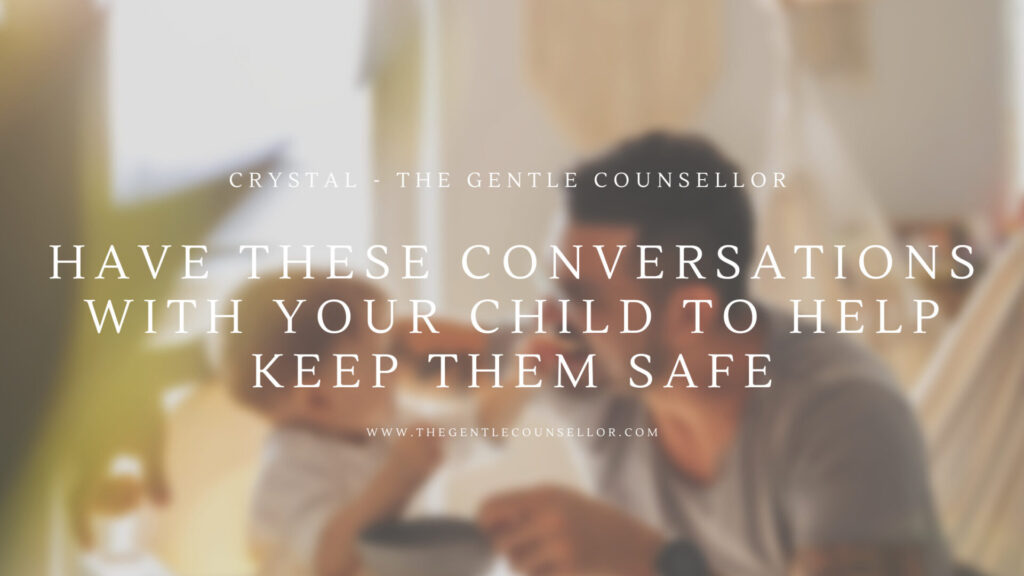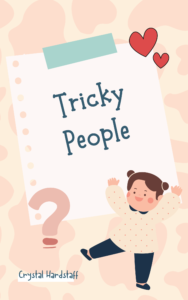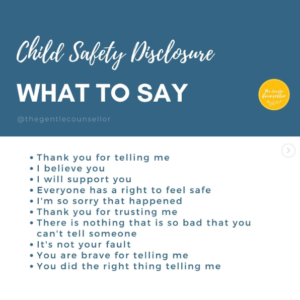
I'm really glad that you opened this blog post because this is a really important one that is going to give you information and advice on how to have difficult conversations with your child when it comes to keeping them safe.
One of the most asked questions I get is at what age should we start having conversations with our kids around body autonomy and consent. My answer is the sooner the better. These conversations need to be ongoing and will change and adapt as your child develops and ages to keep it appropriate for their current stage and capability to understand. This advice may also look different for children who have experienced trauma or are neurodivergent so please speak with a professional if you are wanting additional support.
You can watch my video on TikTok here about why we are no longer using 'stranger danger'.
'Tricky People' by Crystal Hardstaff from The Gentle Counsellor is a children's book for parents and caregivers to read to their children about consent, body autonomy, what is and is not ok, the warning signs, who are safe people, and how to listen to their instincts when something or someone doesn't feel right. Stranger Danger is an old and outdated concept, and using the language of Tricky People helps empower and protect children.
| Here is some brief information on how you can get started with these conversations and the particular focus points for these developmental ages and stages of your child's life. Start at the beginning of this list to see if there may be missed conversations to catch up on now. This is not a comprehensive list, but a good starting point.
Infant (0-2 years)
Early childhood (3-5 years)
School-age (6-10 years)
Adolescent (10-17 years)
*This section is a large age group because of the range of differences we see in children experiencing puberty. Use your best judgment and the child in front of you for knowing when to approach these conversations. Adulthood (18+ years)
If you are in a situation where a child discloses something to you, here is an Instagram post with some ideas on what to say, what not to do, and further resources. |
Want more? Read my Blog Posts
Empowering Children with Body Safety
Talking to your child about safety, strangers & tricky people.

